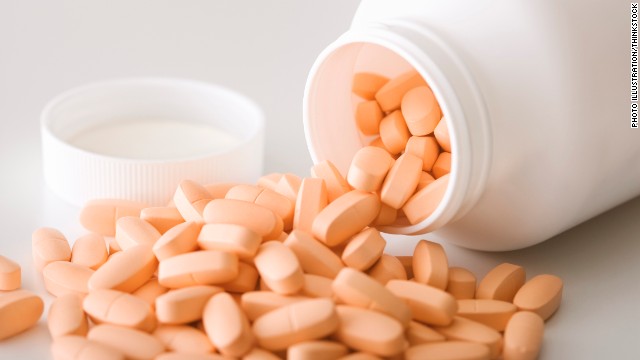Vitamins and supplements could do more harm than good in some cases, according to a new report in Consumer Reports.
The
report, in Consumer Reports' September issue, investigates 10 unknown dangers associated with taking vitamins, minerals, herbs, and nutritional supplements.
More than half of all Americans take supplements, and the supplement industry has grown to a $27 billion industry.
But supplements aren't necessarily risk-free, according to Dr. Jose Mosquera, medical adviser for Consumer Reports. While patients may believe supplements are safe because they are natural, he says not all supplements are truly all-natural.
Between 2007 and mid-April 2012, the Food and Drug Administration received more than 6,300 reports of serious adverse events linked to dietary supplements, including vitamins and herbs, according to Consumer Reports. The reports include 115 deaths and more than 2,100 hospitalizations.
Supplements should only be taken when there is a true deficiency, Mosquera says, and people should talk to their doctors before starting a supplement.
“Supplements and vitamins should never be a substitute for a healthy lifestyle with a nutritional plan,” he says. He adds that it’s better to get vitamins from healthy eating than from taking supplements.
The
Council for Responsible Nutrition (CRN), an association representing dietary supplement manufacturers, counters, “There is a strong body of scientific evidence that supports the benefits of dietary supplements and these products have a very strong profile for safety.”
However, Consumer Reports says some supposedly natural products are laced with the
same active ingredients in prescription drugs, and people often experience unwanted side effects while taking the supplements.
The supplements for body building, enhancing sexual performance, and losing weight are the most likely to be laced, says Mosquera. He advises, “Protect yourself by trying to avoid these types of supplements, and have a conversation with your doctor about lifestyle changes.”
The high doses of vitamins and minerals in some supplements present another danger. People that take more than 100% of the recommended daily intake of a nutrient could have adverse reactions.
Existing laws make it difficult for the FDA to regulate problematic supplements, according to the report. Under the
Dietary Supplement Health and Education Act (DSHEA) of 1994, most manufacturers don’t need FDA approval to sell dietary supplements, and the FDA must prove a supplement is unsafe before taking it off the market.
The report also cautions that the FDA doesn’t require supplements to have warning labels unless they contain iron. For example, some products with St. John’s Wort don’t warn that it is known to reduce the effectiveness of birth control pills and blood thinners.
No supplement has been shown to cure a major disease, says the report. New evidence shows that even Omega-3 pills, widely believed to reduce the risk of heart disease, may not be as effective as once thought.
More than 150 million Americans take dietary supplements each year, the Council for Responsible Nutrition notes.
"Consumers need to be savvy and buy from companies with strong brand reputations or look for those that have third party certification on their labels," the council says. "It is also important for consumers to talk to their health care professionals and understand that dietary supplements are intended to supplement a healthy diet and do not serve as substitutes for drugs."




 Photo Credit: Getty
Photo Credit: Getty